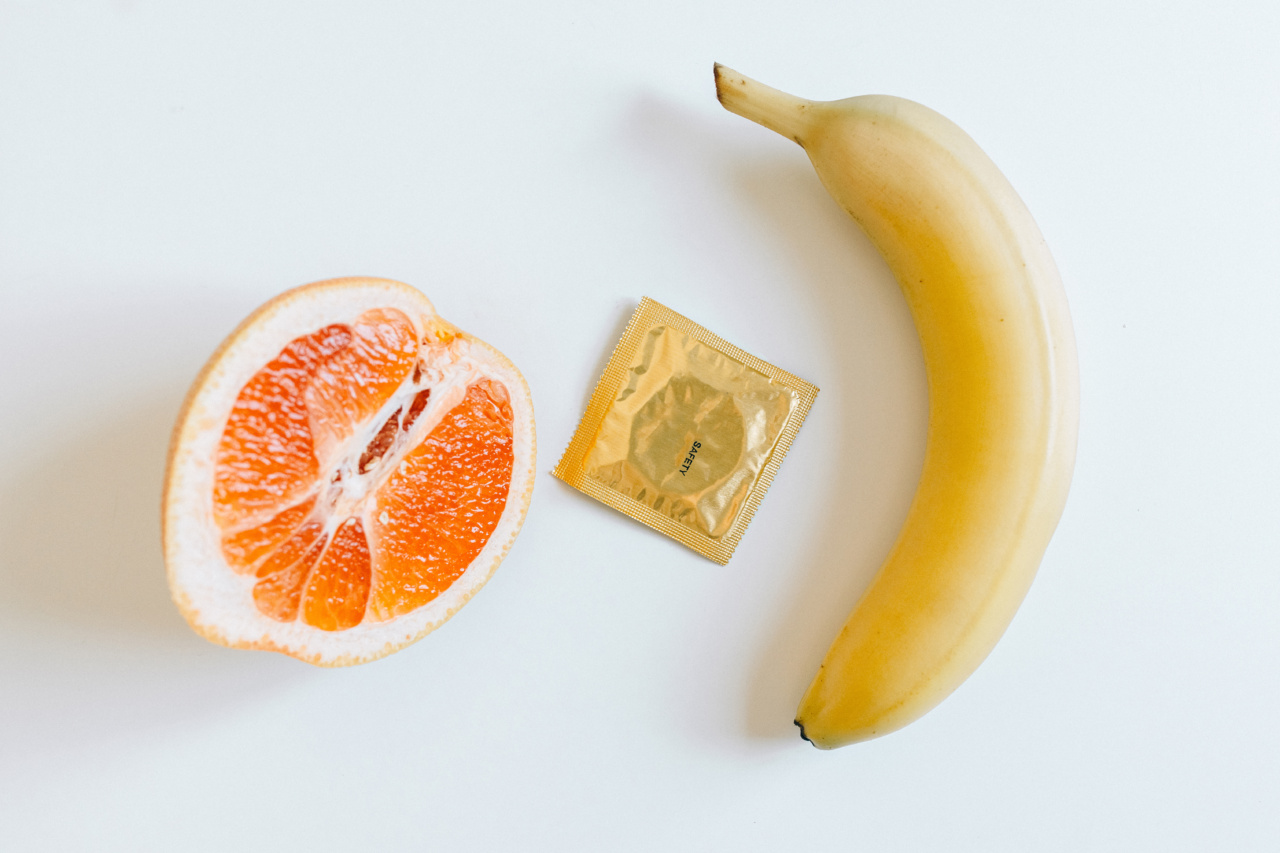Summer is a season of fun and excitement, and for many people, it also means an increase in sexual activities.
While enjoying outdoor adventures and indulging in romantic encounters, it’s essential to be aware of the potential health risks that summer sex may bring. In this article, we will explore the various risks associated with summer sex and provide you with valuable prevention tips to ensure your sexual well-being.
1. Increased Risk of Sexually Transmitted Infections (STIs)
Engaging in unprotected sex during the summer months can significantly increase the risk of contracting sexually transmitted infections (STIs). This is predominantly due to several factors:.
– Increased number of sexual partners: During summer, people tend to be more socially active and may explore new relationships or engage in casual encounters.
With multiple partners, the possibility of encountering an infected individual also rises.
– Limited access to protection: Engaging in spontaneous sexual activities outdoors or in unfamiliar locations might compromise the accessibility and availability of contraception.
This lack of protection increases the chances of transmitting or acquiring an STI.
To protect yourself from STIs:.
– Always use a barrier method, such as condoms, during sexual intercourse.
– Get yourself tested regularly and encourage your partners to do the same.
– If you are unsure about your partner’s sexual health status, consider practicing abstinence or being in a monogamous relationship where both partners are committed to being tested and aware of their STI status.
2. Heat-Related Risks
The hot and humid weather of summer can exacerbate certain risks associated with sexual activities:.
– Dehydration: Sweating during sexual activities can lead to dehydration, which could result in various health complications. It is crucial to stay hydrated by drinking plenty of fluids.
– Heat exhaustion: Engaging in vigorous sexual activities under the scorching sun can increase the risk of heat exhaustion.
It’s essential to be mindful of the signs of heat exhaustion, such as dizziness, nausea, and excessive sweating, and take immediate breaks when necessary.
To prevent heat-related risks:.
– Stay hydrated by drinking water before, during, and after sexual activities.
– Find shaded or air-conditioned areas for sexual encounters, especially during peak sun hours.
– Take regular breaks and avoid overexertion during prolonged sexual activities.
3. Allergic Reactions
Exposure to various elements during summer can trigger allergic reactions or irritate sensitive areas of the body:.
– Pollen allergies: For individuals with pollen allergies, outdoor sexual activities may lead to allergic reactions like itching, rashes, or respiratory symptoms. It’s crucial to be aware of your allergies and take necessary precautions.
– Chemical irritants: Pools, hot tubs, and even certain lubricants or sunscreens can contain chemicals that may cause irritation, especially in more sensitive areas of the body.
To prevent allergic reactions:.
– Take antihistamines or allergy medications if you have pollen allergies. Engage in sexual activities during times when the pollen count is lower.
– Avoid using chemical-based personal care products before or during sexual encounters.
– Opt for hypoallergenic lubricants and sunscreens.
4. Sunburns and Skin Damage
Engaging in sexual activities under the sun can leave your skin prone to sunburn and long-term damage:.
– Sunburn: Excessive sun exposure without proper protection can lead to painful sunburns. Certain sexual positions or areas of the body may receive more direct and prolonged sunlight, putting those areas at a higher risk of sunburn.
– Skin damage and aging: Unprotected sun exposure contributes to premature aging and increases the risk of skin cancer.
To protect your skin during summer activities:.
– Apply sunscreen with a high SPF to all exposed areas of the skin, including genital areas.
– Seek shade or use umbrellas to minimize direct sun exposure.
– Consider engaging in sexual activities during cooler hours of the day, such as early mornings or evenings.
5. Insect Bites and Vector-Borne Diseases
Spending time outdoors during summer exposes you to various insects and potential vector-borne diseases:.
– Mosquito-borne diseases: Mosquitoes can transmit diseases such as Zika virus, dengue fever, or West Nile virus. During sexual activities in outdoor locations, you may be at a higher risk of getting bitten by infected mosquitoes.
– Tick bites: Engaging in sexual activities in areas with high tick populations, such as grassy fields or wooded areas, can increase the risk of tick bites and diseases like Lyme disease.
To prevent insect bites and vector-borne diseases:.
– Use insect repellent containing DEET or other recommended ingredients.
– Wear protective clothing to minimize exposed skin.
– Check yourself and your partner for ticks after engaging in sexual activities in high-risk areas.
– Stay updated on local health advisories regarding mosquito-borne diseases.
6. Hygiene and Infection Risks
During summer, maintaining good hygiene practices becomes crucial to prevent infections:.
– Public facilities: Engaging in sexual activities in public restrooms or other shared spaces may increase the risk of exposure to bacteria, viruses, and other pathogens.
– Sweating and humidity: Sweating during summer encounters can create a moist environment, which may promote the growth of bacteria and fungi. This can lead to urinary tract infections (UTIs) or yeast infections.
To minimize hygiene-related risks:.
– Choose private and clean locations for sexual activities.
– Stay hydrated to promote proper bodily functions and minimize sweat-related issues.
– Shower before and after sexual activities to maintain cleanliness.
– Regularly change clothes, especially undergarments, to prevent moisture accumulation.
7. Emotional Risks
While summer flings and casual encounters may be enticing, they can sometimes lead to emotional challenges:.
– Emotional attachment: Engaging in short-term relationships or casual sex might lead to emotional attachment or expectations, which can cause distress when those expectations are not met.
– Miscommunication: Quick flings can sometimes lack clear communication about expectations, boundaries, or safe practices, increasing the potential for misunderstandings.
To protect your emotional well-being:.
– Be clear about your intentions and expectations from the beginning.
– Practice open and honest communication with your partner(s).
– Be mindful of your own emotions and take steps to protect yourself if you feel vulnerable.
8. Prevention Tips for Safe Summer Sex
While it’s important to be aware of the health risks associated with summer sex, it’s equally crucial to take preventive measures to ensure safe sexual experiences. Here are some essential tips:.
1. Use protection: Always use barrier methods, such as condoms or dental dams, to reduce the risk of STIs, even if you and your partner(s) have been recently tested.
2. Get tested regularly: Regular STI testing is important, especially if you engage in casual or multiple sexual encounters. Encourage your partners to get tested as well.
3. Stay hydrated: Drink plenty of fluids to prevent dehydration during sexual activities in hot weather.
4. Protect yourself from the sun: Apply sunscreen with a high SPF to all exposed areas of the skin and seek shade when necessary.
5. Be mindful of allergies: If you have known allergies, take necessary precautions such as using antihistamines or hypoallergenic products.
6. Practice good hygiene: Maintain proper hygiene practices, including showering before and after sexual activities, to minimize the risk of infections.
7. Communicate openly: Clearly communicate your intentions, boundaries, and expectations with your partner(s) to avoid misunderstandings and emotional distress.
8. Be cautious in public spaces: If engaging in sexual activities in public restrooms or other shared spaces, consider the increased risk of exposure to pathogens and choose private locations whenever possible.
9. Consult a healthcare professional: If you have specific concerns or questions about your sexual health during the summer, don’t hesitate to seek guidance from a healthcare professional.
By following these prevention tips and being vigilant about your sexual well-being, you can enjoy the pleasures of summer sex while minimizing potential health risks.






























